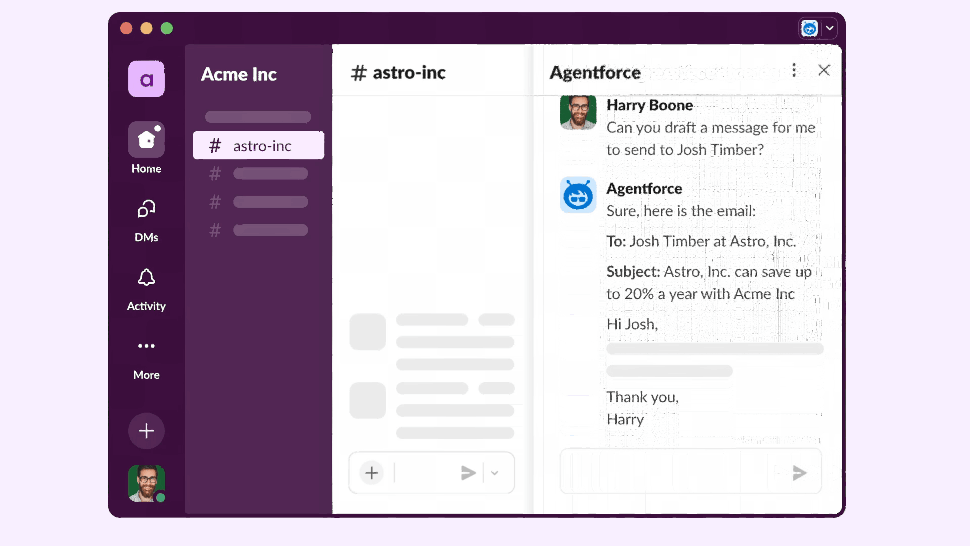Keeping track of what was said in even the briefest workplace chats and meetings could soon get a lot easier thanks to a new update from Slack.
The online collaboration platform has revealed its “huddles” – quick-starting meetings designed for spontaneous chats and catch-ups – will now be able to use its Slack AI platform to generate notes for users.
Slack AI will use real-time audio along with the messages sent in the huddle to create a transcript, letting attendees keep track of exactly what was said, and by whom.
Slack AI Agents
Once the huddle is complete, the transcript and notes will be shared into a Slack canvas, including citations and action items. The notes will be visible to anyone in the channel or direct message that hosted the huddle, meaning even those members unable to attend can keep track of what went on.

Elsewhere, Slack also revealed several other AI-powered upgrades, including full integration with Agentforce, a major new release from its parent company Salesforce.
Designed to help enable “the third wave of AI”, Agentforce will allow companies to communicate with their data like never before, connecting unstructured data in a way that gives customers access to new insights and a greater experience for all.
It’s not just AI agents from Salesforce getting in on the action, as the company announced a number of third-party AI agents will also be coming to Slack, including the likes of Adobe, Anthropic, Cohere, and Perplexity.
The move is another step along Slack’s AI journey, which has been ramping up in recent months.
The company claims customers have summarized more than 600 million messages, saving a collective 1.1 million hours across users, since it unveiled Slack AI in September 2023.
“We’ve moved beyond collaboration; every day, millions of teams are leveraging purpose-built AI, with customer data, automation, and now agents seamlessly integrated into the flow of work,” noted Denise Dresser, CEO, Slack.
“This isn’t just about getting work done. It’s about unlocking new productivity levels to drive results and move business forward for every team and department. In today’s increasingly complex work environment, true productivity requires a work operating system built for the future of work — and that is Slack.”




















+ There are no comments
Add yours